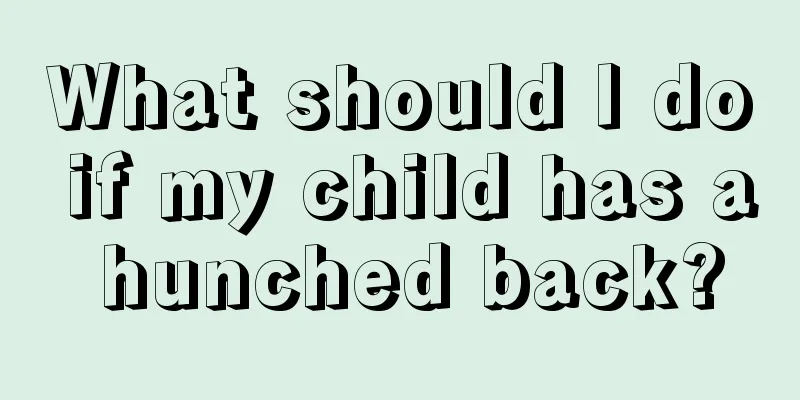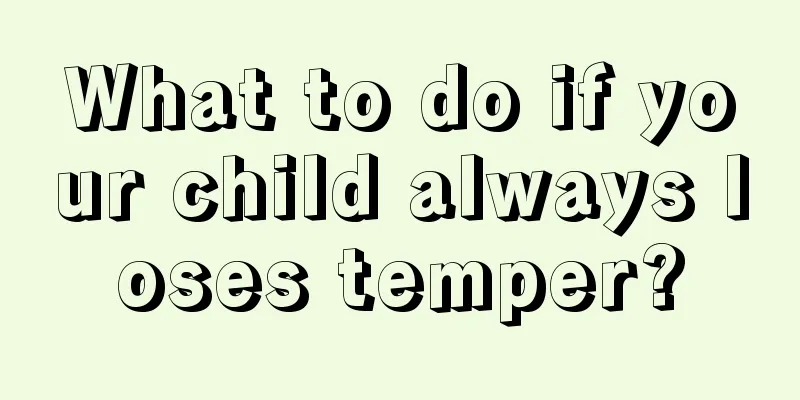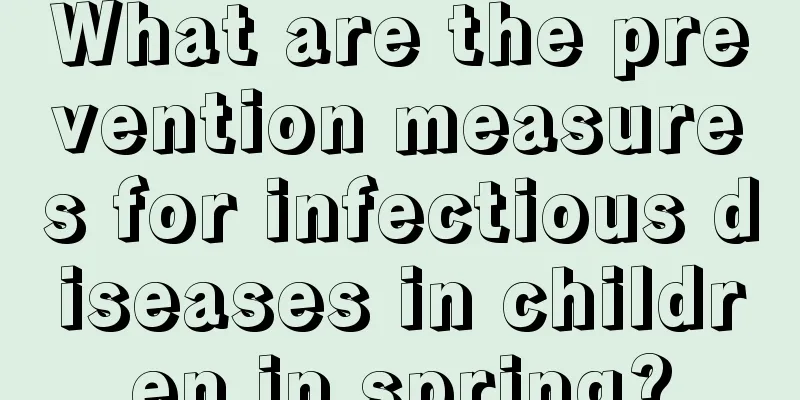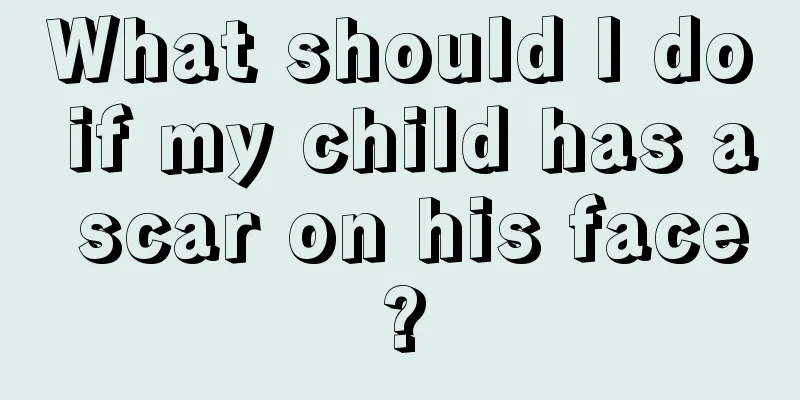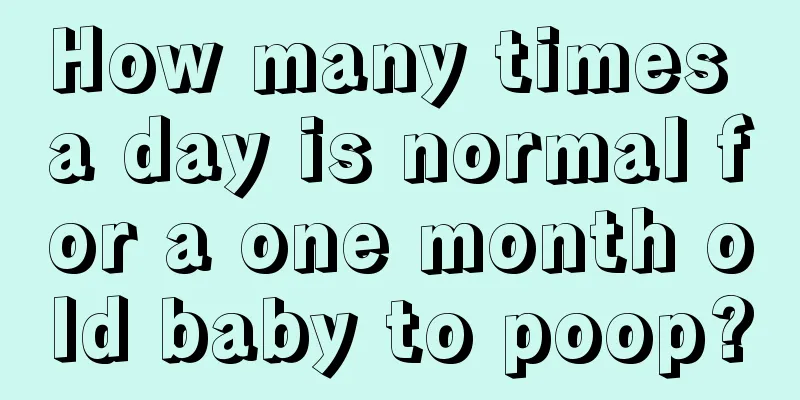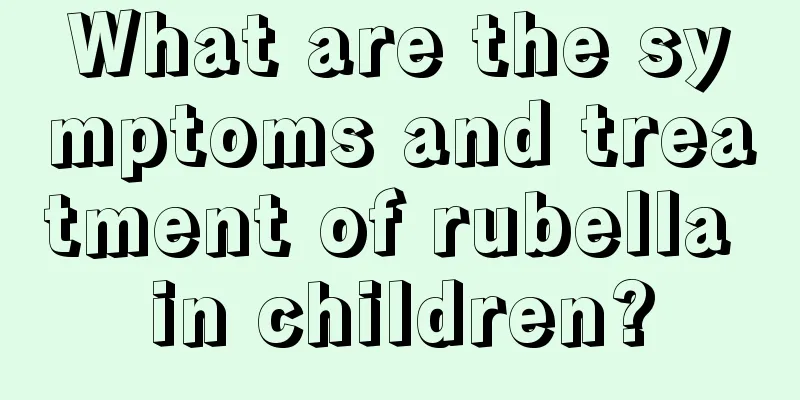What to do if your baby falls and has a nosebleed

|
Every child is the hope of the family. What every parent hates most is that their child has health problems. We all know that babies are lively and active by nature. However, if we fail to take conscious care of the baby in their daily life, it is very easy for the baby to fall and have a nosebleed. Many parents are always very nervous when they see their baby bleeding from the nose. They don’t know whether the baby’s nose is broken or what happened, and they don’t know how to help the baby deal with it. Let’s find out what to do if the baby falls and has a nosebleed? What to do if your baby falls and has a nosebleed There are many capillaries in the nasal cavity. It is normal for them to rupture and bleed after being subjected to external force, so there is no need to worry too much. The issues that should be noted are: (1) If the bleeding is not too severe and is just caused by ruptured capillaries, plug the bleeding nostril with clean toilet paper and cover the face and forehead with a cold towel to stop the bleeding. (2) If the bleeding is very rapid, it means that the artery is damaged and you should see a doctor, but this situation is extremely rare; (3) The child's nose bridge is probably damaged. This depends on the child's mental state. The pain nerves in the nasal cavity are underdeveloped. Generally, the child will stop crying soon and return to a good state. At this time, you can press the child's nose bridge lightly with your fingers. If the child does not react violently, it means that everything is fine. Nosebleeds in children are an emergency and should be stopped promptly if they occur. A simple method is to plug the bleeding nostril with a sterilized cotton ball or pinch both nostrils with your thumb and index finger; you can also press the affected nostril with your index finger for 5-10 minutes to stop the bleeding. At this time, you should try to keep your child quiet and avoid crying. It is best to let the child sit with his head slightly tilted forward, and try to spit out the blood swallowed from the nasopharynx into the mouth. This will not only let you know the amount of bleeding but also avoid swallowing the nosebleed into the stomach, which will irritate the stomach and cause abdominal pain and vomiting. If the amount of bleeding is large and there are precursor symptoms of hemorrhagic shock such as pale complexion, sweating, rapid heart rate, and poor spirits, the patient should be placed in a semi-recumbent position and sent to the hospital for treatment as soon as possible. When treating in the hospital, the doctor will give appropriate treatment based on the location of the nose and the amount of blood. Nosebleeds in children often occur in the "Li's area" in the front third of the nasal septum, which is rich in blood vessels. If bleeding occurs repeatedly, local treatment with freezing, microwaves and chemical drugs can be used. For smaller amounts of nosebleeds, you can also use nasal drops containing 1% ephedrine to stop the bleeding by constricting the blood vessels. The above is an introduction to what to do if your baby falls and has a nosebleed. After understanding it, we know that when such symptoms occur, parents should not panic too much and must help the baby stop the bleeding. In addition, in the process of taking care of the baby, you must take good care of the baby and try to avoid symptoms such as the baby falling. You must also observe the baby's mental state. If the baby is crying or in a bad mental state, you must seek medical attention in time. |
<<: What to do if your child has a nosebleed for no reason
>>: What to do if your baby keeps sneezing and having a runny nose
Recommend
What to do if your baby cries after getting a vaccination
Babies' skin is relatively fragile, and they ...
3 year old baby has swollen belly
A three-year-old baby can already eat normally at...
What should I do if my autistic child can’t sit still?
There are more and more children with autism, and...
How to treat children with Yin deficiency and excessive fire
Children are active and lively by nature. Since t...
What medicine should children take for gastrointestinal cold
Gastrointestinal colds are relatively common clin...
What to do if your two-year-old baby has conjunctivitis
At present, there are countless cases of children...
Nursing is also important for children undergoing heart surgery
Children's physical constitution is relativel...
Why do children like to sleep on their stomachs?
Many mothers like to post photos of their childre...
How to treat baby heat bumps
The physical health of infants needs attention, b...
What to do if your child accidentally drinks iodine
Povidone-iodine is a disinfectant that is usually...
What is the normal body temperature for a four month old baby?
Body temperature is an important indicator of the...
Can children eat candy when they have a cough?
Candy is a kind of snack that many children like ...
What causes foam in children's urine?
Some children have problems with their urine, so ...
Can cleft lip and palate be seen by ultrasound? A must-see for expectant mothers
I believe everyone is familiar with cleft lip and...
Is it good for babies to bathe every day in winter?
Many mothers want to know whether it is good for ...
